Nature

Viewpoint: My scientific paper was accused of ChatGPT plagiarism. Here’s how I proved my innocence
A journal reviewer accused Lizzie Wolkovich of using ChatGPT to write a manuscript. She hadn’t — but her paper was ...
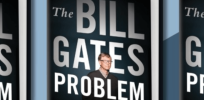
Viewpoint: Causing more harm than good? How billionaire donors influence global health priorities
Charitable foundations led by billionaires might aggravate global health and other societal issues as much as they might alleviate them ...
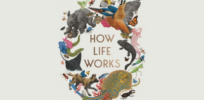
Are our genes the template for life? The reality is a lot more complicated
Biology is often presented to the public is oversimplified and out of date. Scientists must set the record straight, argues ...

Bioluminescent petunias: Light-up mushroom genes are secret ingredient in green glowing genetically modified plants — and they are now on sale
Consumers in the United States can now pre-order a genetically engineered plant for their home or garden that glows continuously. At a ...
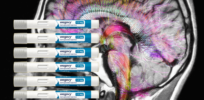
Obesity drugs could treat Parkinson’s and Alzheimer’s? It appears they lower inflammation in the brain, sparking hope of additional therapeutic uses
Evidence suggests that the drugs classified as GLP-1 receptor agonists — a category that includes brand names such as Mounjaro ...

‘We need to stem the flow of bogus research’: Effort under way to challenge academic ‘paper mills’
Poor-quality studies are polluting the literature — a group will study the businesses that produce them to stem the flow ...
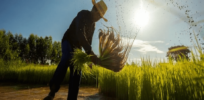
Gene-edited fungus-resistant rice variety slated for field trials, first genetically-engineered crop trial in Italy nearly 20 years
For the first time in almost 20 years, a new entry appeared in the public database that lists proposals to test ...
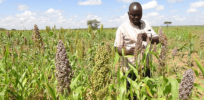
African countries turn toward home-engineered gene edited crops to ensure regional acceptance
Molecular biologist Steven Runo once thought that his team would make history as the first to plant gene-edited seeds in African soil ...

Maybe the Black Death did not reshape human evolution after all
An ancient-DNA study of medieval Cambridge found no sign of genes that helped people to survive the plague ...
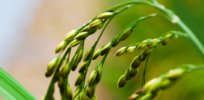
Next breakthrough CRISPR crop? Turning wild rice species into a domesticated crop
[Jiayang] Li, a plant geneticist at the Institute of Genetics and Developmental Biology in Beijing, is working on a wild ...
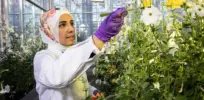
Ever seen an orange petunia? CRISPR gene-editing can make that happen naturally
White petunias exist in nature, but not bright orange and yellow ones. In 2015, one of my PhD advisers, Teemu ...
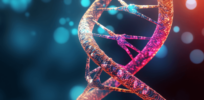
Breakthrough CRISPR treatment for sickle cell anemia up for FDA approval
Advisers to the US regulatory agency will examine the safety profile of a CRISPR-based treatment for sickle-cell disease ...

Pangaea Ultima: What geologists think landmasses of the world might look like in 250 million years
Only a fraction of the planet’s surface will be habitable to mammals when the next supercontinent, Pangaea Ultima, forms ...
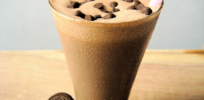
Why do we love to eat rich, fatty foods?
Rich, high-fat foods such as ice cream are loved not only for their taste, but also for the physical sensations they ...
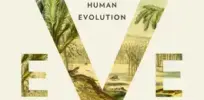
New book Eve explores ‘how bodies evolved, how they work and what it really means to be a woman’
What is a woman? In Eve, Cat Bohannon traces the development of female bodies back 200 million years. A writer with ...
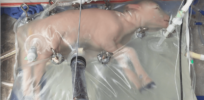
From lambs to humans: Artificial wombs are on the horizon
A hairless, pale-skinned lamb lies on its side in what appears to be an oversized sandwich bag filled with hazy ...

Is it possible to create a computer copy of a human brain? Europe spent more than $600 million to find out
It took 10 years, around 500 scientists and some €600 million, and now the Human Brain Project — one of ...

Potential glyphosate ban: Calculating economic consequences if Europe’s most widely used pesticide is banned
Glyphosate is the most widely used pesticide in Europe. However, due to its potential effects on human health, its renewal ...
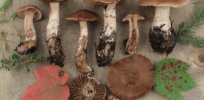
‘More than just eating bugs’: Future proteins made from fungi, algae, and bacteria offer sustainable alternatives to current global diet
Would you eat a burger enriched with mealworms? Fake bacon sliced from a mass of fermented fungi? Milk proteins extruded ...
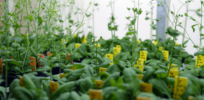
Viewpoint: Europe’s gene editing deregulation proposal is a welcome break from technophobia but it shortchanges organic farmers who want to grow bioengineered seeds
Some of the key technologies used to engineer plants by introducing genes from another species were invented at European universities, ...

Future protein: ‘If meat-loving habits prove too hard to shift, the obvious solution is to replace meat with meat’
Globally, 80 billion animals die for our dinners each year — and a joint report by the United Nations and the ...
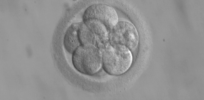
Ethical debate escalates over propriety of 14-day limit on lab-grown embryos
Embryo-like structures made using human stem cells could enable research that is not currently possible using natural embryos ...

What’s trendy isn’t always best: Why land-sharing and rewilding risk driving up food imports and accelerating biodiversity loss
Numerous studies show that some of today’s most popular conservation policies are doing little to help those species most affected ...
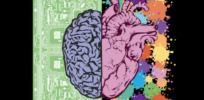
Does brain stimulation boost memory or improve focus? It depends
Analysis of more than 100 studies of non-invasive electrical brain stimulation probes whether the controversial technology works ...
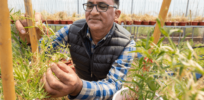
Viewpoint: CRISPR crop regulations should be based on the final product, not on the nearly undetectable process of producing new plants
The adoption of new technologies by plant breeders and developers depends on clear, predictable, risk-proportionate regulation and the breadth of ...
How does chronic stress worsen gut inflammation and cause bowel diseases?
Signals originating in the brain make their way to gut nerve cells, leading to a release of inflammatory chemicals ...

Ethical issues aside, CRISPR babies are too risky
While society grapples with the social and ethical implications of heritable genome editing, technical obstacles still abound ...
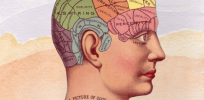
Your brain could be controlling how sick you get — and how quickly you recover
Scientists are deciphering how the brain choreographs immune responses, hoping to find treatments for a range of diseases ...

